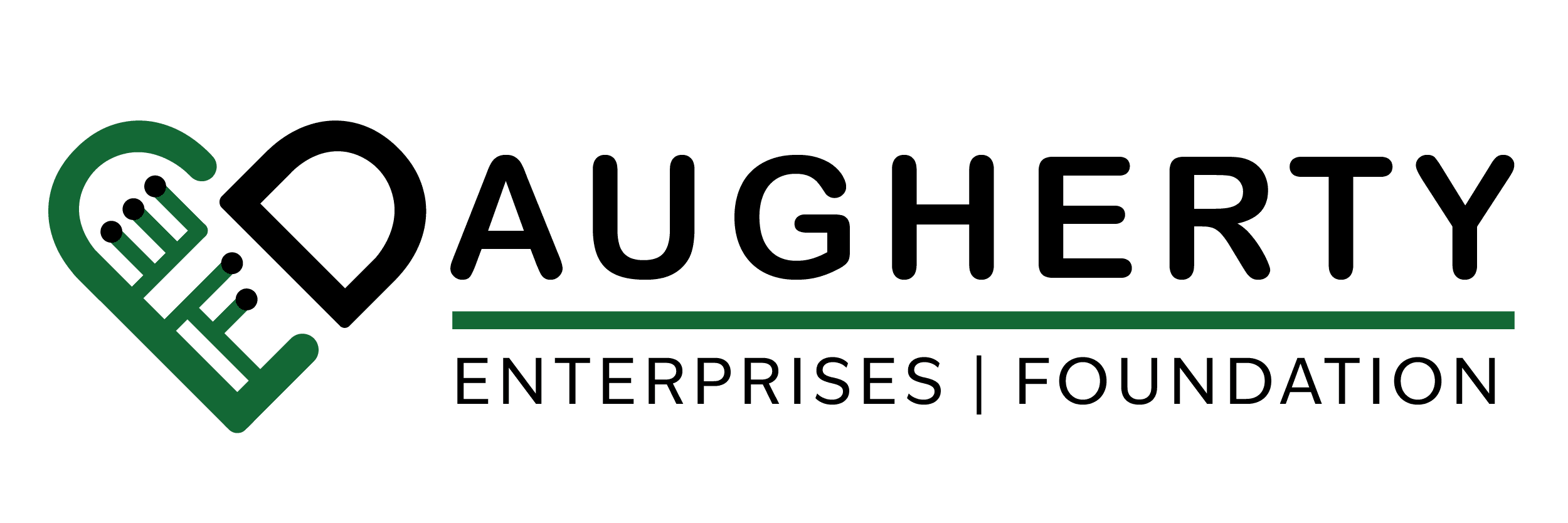A Family’s Guide to Alzheimer’s
An Alzheimer’s diagnosis reshapes entire family dynamics. Whether you’re an adult child fielding appointments, a spouse coping with daily changes, or a grandchild watching from the sidelines, Alzheimer’s is hard.
An Alzheimer’s diagnosis reshapes entire family dynamics. Whether you’re an adult child fielding appointments, a spouse coping with daily changes, or a grandchild watching from the sidelines, Alzheimer’s is hard.

If you’re dealing with a recent diagnosis in the family and are confused about what to do next, we’re here to help. This family’s guide to Alzheimer’s offers concrete next steps that can help you move from shock to sustainable support.
Table of Contents:
Learning about Alzheimer’s can be overwhelming, and some parts of this guide may feel heavy.
It’s important to remember that knowledge is power. Preparing yourself doesn’t mean living in fear—it means giving your family a better foundation to handle what’s ahead. Alzheimer’s is a serious, progressive disease, but with the right planning, support, and mindset, families can maintain dignity, connection, and moments of joy.
Take this guide at your own pace. You don’t have to absorb everything at once, and you’re not alone on this journey.
In the first 30 days of a diagnosis, clarity and action are your best friends. Here are some first steps to take if you or a family member has been diagnosed with Alzheimer’s:
It’s essential to ask your neurologist pointed questions: What stage is it? What treatments can help slow progression? Are there clinical trials available? Ensure you obtain and organize all medical records. This information is invaluable for ongoing care.
Give yourself and your family time to process the news emotionally. It’s okay to grieve, to feel fear, and to be uncertain. Organize a group conversation, if possible, where you can talk through what you’re feeling with those closest to you. Encourage everyone to voice their feelings and questions. Real, honest communication early on sets the tone for how you’ll move forward together.
Don’t delay essential legal paperwork. A healthcare proxy and power of attorney should be set up early, ensuring your loved one’s preferences are respected, and decision-making authority is clear.
Managing medications, appointments, and care information can quickly become overwhelming. Establishing a shared digital drive or physical binder accessible to all family members can streamline communications and ease caregiving burdens.
Alzheimer’s uniquely impacts each family member. Recognizing and addressing these varied emotional and practical needs helps foster a supportive environment. Here’s practical advice for how different family members can tackle an Alzheimer’s diagnosis.
For spouses, the diagnosis shifts daily routines and introduces new responsibilities, leading to physical exhaustion and emotional strain. It’s crucial to seek practical solutions early, such as home safety assessments and financial planning consultations.
Joining support groups like Alzheimer’s Association’s “ALZConnected” provides emotional reassurance and shared strategies from those walking the same path.
Adult children commonly face the task of balancing their own responsibilities while managing their parent’s care. Helping a parent with Alzheimer’s can be especially taxing, especially as an only child.
Coordination among siblings and other family members is key—establish rotating schedules for appointments and caregiving tasks. Address sensitive topics such as driving and home safety proactively to prevent emergencies.
Emotional well-being matters too; consider individual therapy or caregiver coaching through organizations like the Family Caregiver Alliance.
Teens and younger family members may feel particularly isolated, grappling with confusion and fear. Initiate age-appropriate conversations about Alzheimer’s, clarifying symptoms and changes they may observe. Sharing memories, even simple activities like looking through photos, helps maintain emotional connections.
You don’t have to do it alone. Building a reliable care circle distributes responsibility and provides emotional relief.
Designate one individual as the primary communicator for medical staff and pharmacies. Centralizing responsibility avoids confusion and ensures consistency in care management.
Leverage community support. Have friends organize meals, transportation, and occasional respite care as a safety net for your family. Extended family members often want to help but may not know how to jump in—offering them specific tasks like grocery shopping or meal prep gives them a meaningful way to contribute.
Identify when outside assistance becomes necessary. Home-health aides, social workers, or geriatric care managers can significantly enhance quality of life and ease family stress, especially as caregiving demands intensify. Don’t wait for a crisis to bring professionals into the circle—building relationships with reliable care providers early on ensures a smoother transition when needs escalate.
Online and in-person support groups are a valuable extension of your care circle. They provide a safe space for caregivers and family members to share experiences, offer advice, and receive emotional support. Tapping into groups offered by organizations like the Alzheimer’s Association or local community centers creates an additional layer of strength around your family.
Every strong care circle needs clear communication. Hold regular family meetings to check in emotionally and practically, and discuss caregiving responsibilities, boundaries, and upcoming needs. Transparency reduces resentment and helps everyone stay focused on the shared goal: providing compassionate, consistent care for your loved one.
One of the hardest parts of Alzheimer’s support for families often involves juggling finances. Here are tips for managing the financial and legal side of things:
Once an Alzheimer’s diagnosis is made, it’s crucial to have honest and compassionate conversations about finances and legal wishes as early as possible. When your loved one can still participate in decision-making, you’ll be able to respect their preferences and reduce future uncertainty.
Work together to establish who will take on legal authority roles. This may include assigning a financial power of attorney (to manage money matters) and a healthcare proxy (to make medical decisions). Choose people who are trustworthy, organized, and committed to acting in your loved one’s best interests.
Gather all important documents in one secure location. This includes bank statements, insurance policies, retirement accounts, mortgage information, tax returns, and any outstanding debts. Having everything in order can make managing finances much less stressful later on.
If your loved one already has a will or estate plan, now’s the time to review and update it. If they don’t, it’s important to create one. You’ll want to ensure that their assets are distributed according to their wishes and that guardianship plans are made if necessary.
Research potential benefits your loved one may qualify for, such as Social Security Disability Insurance (SSDI), Medicare, Medicaid, or veterans’ benefits. These programs can provide critical financial assistance and ease the burden of long-term care costs.
Plan for both current and future care needs. This includes estimating costs for home modifications, in-home care, assisted living facilities, memory care centers, medications, and therapy. A realistic budget helps families prepare for changing circumstances without scrambling.
If it’s still possible to secure long-term care insurance, it may help cover the future costs of professional care services. Some existing life insurance policies may also offer options for long-term care riders.
Assign a family member or financial professional to track expenses, manage bills, and regularly review the care budget. Having a system in place ensures that finances stay on track and any red flags are caught early.
An elder law attorney or financial planner specializing in dementia care can be a game-changer. They’ll guide you through complex issues like asset protection, Medicaid planning, and long-term financial sustainability — offering peace of mind for the entire family.
Are you struggling with the responsibilities of becoming a caregiver? Our guide, “Caring for the Caregivers,” offers actionable advice that can help you cope with the stressful realities of caregiving.
Creating a safe and supportive home environment is one of the most important steps you can take to help your loved one maintain independence and confidence. Below we’ve included a room-by-room guide to making thoughtful adjustments that reduce risks and simplify daily life. Remember, your needs may vary, so use your best judgement when it comes to your personal situation:
Thoughtful, proactive home modifications can greatly improve both safety and comfort—allowing your loved one to navigate their surroundings with greater ease and dignity.
Caring for someone with Alzheimer’s is deeply meaningful—but it can also be emotionally and physically exhausting. Fortunately, there are resources available to support you:
Managing Caregiver Stress – Alzheimer’s Association
Family Members and Caregivers – National Alliance on Mental Illness
Tips for Managing Caregiver Stress – Alzheimer’s Foundation of America
Caring for Yourself – National Institute on Aging
Alzheimer’s Caregiving Tips – Alzheimer’s.Gov
Exploring these trusted organizations can provide immediate relief, fresh ideas, and emotional support as you navigate caregiving.
Every family’s Alzheimer’s journey is uniquely challenging, but you don’t have to navigate it alone. If you’re seeking tailored guidance, vetted resources, or innovative caregiver tools, we’re ready to help.
Together, we can transform uncertainty into a clear path forward—keeping compassion at the center of every step you take.
 https://daughertyenterprises.com/wp-content/uploads/2026/02/businesswoman-using-computer-presentation.jpg
1250
2000
Abstrakt Marketing
/wp-content/uploads/2025/03/Daugherty-Foundation-Logo.png
Abstrakt Marketing2026-02-26 08:45:232026-03-02 09:52:21Enhancing Decision-Making in Finance: The Power of AI Simulation Training
https://daughertyenterprises.com/wp-content/uploads/2026/02/businesswoman-using-computer-presentation.jpg
1250
2000
Abstrakt Marketing
/wp-content/uploads/2025/03/Daugherty-Foundation-Logo.png
Abstrakt Marketing2026-02-26 08:45:232026-03-02 09:52:21Enhancing Decision-Making in Finance: The Power of AI Simulation Training https://daughertyenterprises.com/wp-content/uploads/2026/02/Young-nurse-checking-appointments-list-on-digital-tablet-in-busy-medical-office.jpg
1250
2000
Abstrakt Marketing
/wp-content/uploads/2025/03/Daugherty-Foundation-Logo.png
Abstrakt Marketing2026-02-26 08:44:522026-03-02 09:52:21Revolutionizing Nursing: Using AI Simulators to Build Critical Soft Skills
https://daughertyenterprises.com/wp-content/uploads/2026/02/Young-nurse-checking-appointments-list-on-digital-tablet-in-busy-medical-office.jpg
1250
2000
Abstrakt Marketing
/wp-content/uploads/2025/03/Daugherty-Foundation-Logo.png
Abstrakt Marketing2026-02-26 08:44:522026-03-02 09:52:21Revolutionizing Nursing: Using AI Simulators to Build Critical Soft Skills
 https://daughertyenterprises.com/wp-content/uploads/2025/09/Why-Cognitive-Engagement-Matters.jpg
1250
2000
Abstrakt Marketing
/wp-content/uploads/2025/03/Daugherty-Foundation-Logo.png
Abstrakt Marketing2025-09-26 09:00:082026-03-02 09:52:21Alzheimer’s Prevention: Why Cognitive Engagement Matters More than Ever
https://daughertyenterprises.com/wp-content/uploads/2025/09/Why-Cognitive-Engagement-Matters.jpg
1250
2000
Abstrakt Marketing
/wp-content/uploads/2025/03/Daugherty-Foundation-Logo.png
Abstrakt Marketing2025-09-26 09:00:082026-03-02 09:52:21Alzheimer’s Prevention: Why Cognitive Engagement Matters More than Ever https://daughertyenterprises.com/wp-content/uploads/2025/09/Understanding-Leqembi.jpg
1250
2000
Abstrakt Marketing
/wp-content/uploads/2025/03/Daugherty-Foundation-Logo.png
Abstrakt Marketing2025-09-22 08:51:502026-03-02 09:52:21Understanding Leqembi: A Potential Breakthrough in Alzheimer’s
https://daughertyenterprises.com/wp-content/uploads/2025/09/Understanding-Leqembi.jpg
1250
2000
Abstrakt Marketing
/wp-content/uploads/2025/03/Daugherty-Foundation-Logo.png
Abstrakt Marketing2025-09-22 08:51:502026-03-02 09:52:21Understanding Leqembi: A Potential Breakthrough in Alzheimer’s https://daughertyenterprises.com/wp-content/uploads/2025/09/An-Overview-of-the-U.S.-POINTER-Trial-Results.jpg
1250
2000
Abstrakt Marketing
/wp-content/uploads/2025/03/Daugherty-Foundation-Logo.png
Abstrakt Marketing2025-09-10 09:26:172026-03-02 09:52:21An Overview of the U.S. POINTER Trial Results
https://daughertyenterprises.com/wp-content/uploads/2025/09/An-Overview-of-the-U.S.-POINTER-Trial-Results.jpg
1250
2000
Abstrakt Marketing
/wp-content/uploads/2025/03/Daugherty-Foundation-Logo.png
Abstrakt Marketing2025-09-10 09:26:172026-03-02 09:52:21An Overview of the U.S. POINTER Trial Results https://daughertyenterprises.com/wp-content/uploads/2025/09/Medical-professional-looking-at-blood-test.jpg
1250
2000
Abstrakt Marketing
/wp-content/uploads/2025/03/Daugherty-Foundation-Logo.png
Abstrakt Marketing2025-09-04 08:06:012026-03-02 09:52:21Blood Tests for Alzheimer’s: Reviewing the Fujirebio and C2N Tests
https://daughertyenterprises.com/wp-content/uploads/2025/09/Medical-professional-looking-at-blood-test.jpg
1250
2000
Abstrakt Marketing
/wp-content/uploads/2025/03/Daugherty-Foundation-Logo.png
Abstrakt Marketing2025-09-04 08:06:012026-03-02 09:52:21Blood Tests for Alzheimer’s: Reviewing the Fujirebio and C2N Tests https://daughertyenterprises.com/wp-content/uploads/2025/08/Leading-Alzheimers-Treatments-Whats-New-and-Whats-Next.jpg
1250
2000
Abstrakt Marketing
/wp-content/uploads/2025/03/Daugherty-Foundation-Logo.png
Abstrakt Marketing2025-08-18 15:16:202026-03-02 09:52:22Leading Alzheimer’s Treatments: What’s New and What’s Next
https://daughertyenterprises.com/wp-content/uploads/2025/08/Leading-Alzheimers-Treatments-Whats-New-and-Whats-Next.jpg
1250
2000
Abstrakt Marketing
/wp-content/uploads/2025/03/Daugherty-Foundation-Logo.png
Abstrakt Marketing2025-08-18 15:16:202026-03-02 09:52:22Leading Alzheimer’s Treatments: What’s New and What’s Next https://daughertyenterprises.com/wp-content/uploads/2025/08/Two-people-walking-at-park.jpg
1250
2000
Abstrakt Marketing
/wp-content/uploads/2025/03/Daugherty-Foundation-Logo.png
Abstrakt Marketing2025-08-06 12:59:532026-03-02 09:52:22Setting a Daily Routine for Alzheimer’s Patients: Our Guide
https://daughertyenterprises.com/wp-content/uploads/2025/08/Two-people-walking-at-park.jpg
1250
2000
Abstrakt Marketing
/wp-content/uploads/2025/03/Daugherty-Foundation-Logo.png
Abstrakt Marketing2025-08-06 12:59:532026-03-02 09:52:22Setting a Daily Routine for Alzheimer’s Patients: Our GuideDaugherty Enterprises helps people lead with empathy, clarity, and confidence through adaptive AI training. Our flagship platform, Better Path AI, empowers caregivers, first responders, and professionals to strengthen emotional intelligence and build meaningful human connections.
This site uses cookies. By continuing to browse the site, you are agreeing to our use of cookies.
AcceptLearn moreWe may request cookies to be set on your device. We use cookies to let us know when you visit our websites, how you interact with us, to enrich your user experience, and to customize your relationship with our website.
Click on the different category headings to find out more. You can also change some of your preferences. Note that blocking some types of cookies may impact your experience on our websites and the services we are able to offer.
These cookies are strictly necessary to provide you with services available through our website and to use some of its features.
Because these cookies are strictly necessary to deliver the website, refusing them will have impact how our site functions. You always can block or delete cookies by changing your browser settings and force blocking all cookies on this website. But this will always prompt you to accept/refuse cookies when revisiting our site.
We fully respect if you want to refuse cookies but to avoid asking you again and again kindly allow us to store a cookie for that. You are free to opt out any time or opt in for other cookies to get a better experience. If you refuse cookies we will remove all set cookies in our domain.
We provide you with a list of stored cookies on your computer in our domain so you can check what we stored. Due to security reasons we are not able to show or modify cookies from other domains. You can check these in your browser security settings.
We also use different external services like Google Webfonts, Google Maps, and external Video providers. Since these providers may collect personal data like your IP address we allow you to block them here. Please be aware that this might heavily reduce the functionality and appearance of our site. Changes will take effect once you reload the page.
Google Webfont Settings:
Google Map Settings:
Google reCaptcha Settings:
Vimeo and Youtube video embeds:
